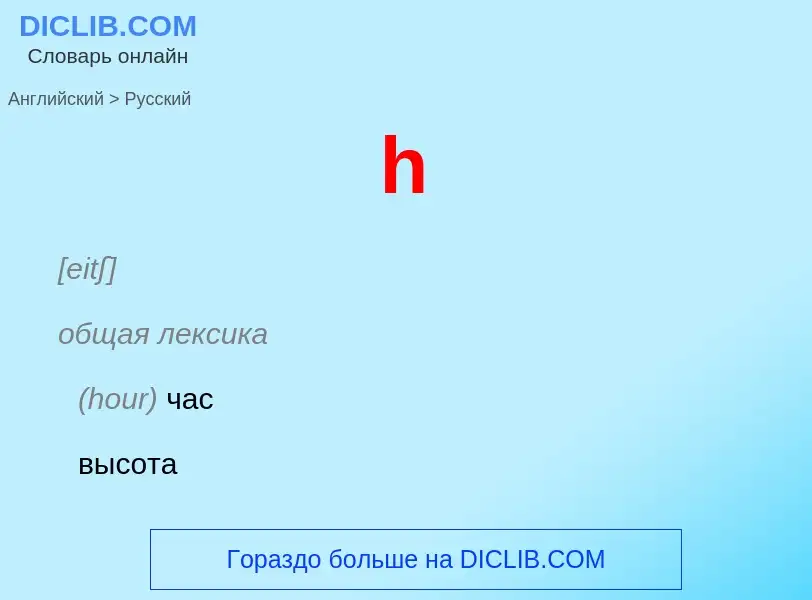Перевод и анализ слов искусственным интеллектом ChatGPT
На этой странице Вы можете получить подробный анализ слова или словосочетания, произведенный с помощью лучшей на сегодняшний день технологии искусственного интеллекта:
- как употребляется слово
- частота употребления
- используется оно чаще в устной или письменной речи
- варианты перевода слова
- примеры употребления (несколько фраз с переводом)
- этимология
Gadamer H G - перевод на Английский
[eitʃ]
общая лексика
(hour) час
высота
сокращение
height
Смотрите также
существительное
общая лексика
8-я буква английского алфавита
8-й номер серии
H (интенсивность магнитного поля)
(H) в грам. знач. прил. (также как компонент сложных слов) имеющий форму буквы H
H-образный
героин
физика
(H)
электротехника
генри
синоним
Определение
Википедия

Hans-Georg Gadamer (; German: [ˈɡaːdamɐ]; 11 February 1900 – 13 March 2002) was a German philosopher of the continental tradition, best known for his 1960 magnum opus, Truth and Method (Wahrheit und Methode), on hermeneutics.
In Truth and Method, Gadamer argued against the idea that meaning could be found through objective methods. Instead, he posited that understanding is a product of a historically-effected consciousness, shaped by an individual's cultural and historical context. Interpreting a text, he argued, involves a fusion of horizons between the interpreter and the text, and this interaction leads to a deeper understanding of the subject matter. Gadamer's work has become influential in communication ethics, contributing to the formulation of dialogic coordinates and promoting mutual understanding and learning in communication. In addition to his work in hermeneutics, Gadamer published extensively on Greek philosophy, particularly Plato and Aristotle.
Born in Marburg, Germany, he studied classics and philosophy under Neo-Kantian philosophers before becoming a student of Martin Heidegger. Despite his lack of political involvement during the Nazi regime, his relationship with the Nazis has been a subject of debate among scholars. After World War II, he left East Germany for West Germany, where he completed Truth and Method and engaged in notable debates with other philosophers.


